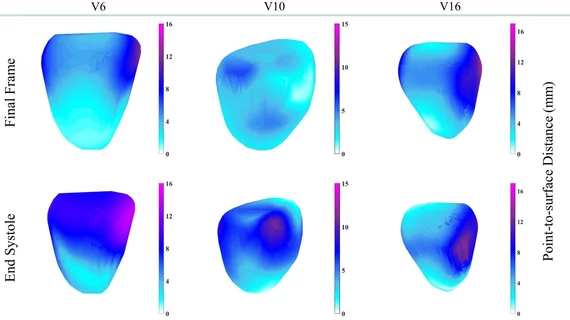New MRI technique measures heart strain without gadolinium
Researchers have developed a new MRI technique that allows providers to measure strain in heart muscles without the use of gadolinium, according to new findings published in Scientific Reports.
The team’s 3D technique uses an image registration method to measure strain in the heart with a median error of 1.49 millimeters, providing care without a gadolinium-based contrast agent (GBCA). GBCAs are typically used during MRI scans, but recent studies have found that gadolinium may pose certain risks to the patient’s health, including impacting kidney function.
“Using 3D MRI computing technique we can see in more depth what is happening to the heart, more precisely to each heart muscles, and diagnose any issues such as remodeling of heart that causes heart failure,” Mark Williams, a professor at the University of Warwick in the U.K., said in a prepared statement. “The new method avoids the risk of damaging the kidney opposite to what traditional methods do by using gadolinium.”
Lead author Jayendra Bhalodiya, also from the University of Warwick, explained in the same statement that there are other benefits to this new technique as well.
“This new MRI technique also takes away stress from the patient, as during an MRI the patient must be very still in a very enclosed environment meaning some people suffer from claustrophobia and have to stop the scan, often when they do this they have to administer another dose of the damaging gadolinium and start again,” Bhalodiya said. “This technique doesn’t require a dosage of anything, as it tracks the heart naturally.”

